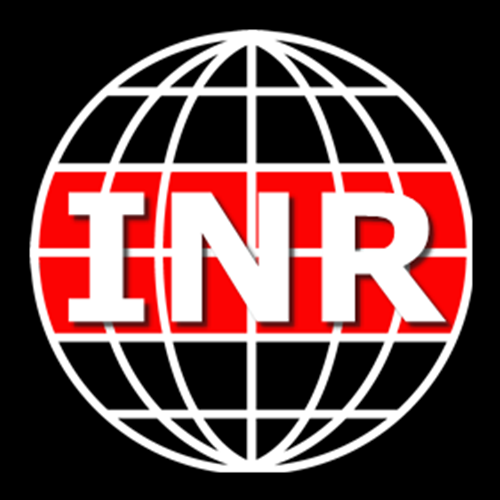 By Independent News Roundup
By Independent News Roundup
By Independent News Roundup| Investigative Essay
As the world moves toward increasingly centralized systems of power, many small and formerly sovereign nations are becoming testing grounds for post-democratic governance. New Zealand stands at the forefront of this transformation, where social engineering, racial division, and ideological weaponization are being leveraged to reshape ownership, governance, and national identity.
This case study explores the mechanisms by which New Zealand is transitioning from a representative democracy into a technocratic, debt-leveraged, race-tiered state, guided not by public will but by supranational frameworks and elite agendas.
Language is never neutral. In New Zealand, the revival and politicization of Te Reo Māori has evolved beyond cultural revitalization into a strategic lever of power:
Public institutions now require bilingualism in branding, governance documents, and media, often elevating Te Reo terms above English ones, regardless of public comprehension.
Government departments have been renamed (e.g., Oranga Tamariki, Te Whatu Ora) to reflect this transformation.
Critics argue that this is less about restoring culture and more about creating ideological legitimacy for a new dual sovereignty model.
"He who controls the language controls the narrative."
A two-tier system is being erected under the banner of Treaty partnership—a concept that has shifted radically in the past two decades:
Co-governance models now exist in health, water management, and resource distribution, giving unelected iwi (tribal) entities effective veto power over public institutions.
The legal reinterpretation of the Treaty of Waitangi frames Māori not as equal citizens, but as permanent partners to the Crown.
This has led to a race-based legal framework, where rights, access, and decision-making authority are being racialized.
"Equity is no longer about opportunity, but about permanent structural entitlement."
The ultimate prize is not identity—it is control over natural resources:
Co-governance frameworks are increasingly tied to Three Waters, fisheries, forestry, and land use, fragmenting public ownership.
These transfers are often funded by public debt and administered through global finance partnerships or supranational directives (e.g., UNDRIP, Agenda 2030).
The resource wealth of New Zealand—once held in public trust—is being dispersed into race-aligned or corporate-private frameworks, outside of democratic oversight.
New Zealand’s policies increasingly reflect the influence of international institutions:
The country’s emissions, pandemic, and equity strategies mirror those of the World Economic Forum, WHO, and IMF.
Funding is often tied to borrowing from global banking consortia, deepening national dependency.
Political elites have reoriented allegiance from voters to international capital and ideological frameworks.
"Democracy in New Zealand now operates within the boundaries set by creditors and consultants."
New Zealand mirrors historical and modern examples of engineered societal transformation:
Cultural erasure and ideological rewriting (as seen in Soviet Russia and Zionist Israel).
Weaponization of trauma and identity for political gain.
Capture of land and resources through administrative lawfare.
The use of debt as a tool of control.
Whether under Bolshevik collectivism, Zionist statecraft, or globalist technocracy, the pattern remains:
"Deconstruct the old world, divide the population, centralize the assets, and then impose a new ideology."
New Zealand is no longer simply a sovereign state with a progressive government—it is a testing ground for a new form of post-democratic governance where ideology, identity, and debt replace civic unity and representative control.
If these patterns continue unchecked, New Zealand risks becoming a vassal state, not to an empire of flags, but to an empire of institutions, laws, debts, and identities that render citizenship secondary to race, culture, and compliance.
The lessons here are global. The experiment may be small in scale—but its implications are planetary.
And perhaps the most reliable measure of whether a society is free or captured lies in this question: Who are you not allowed to criticize?
In New Zealand today, any criticism of these patterns—however reasoned—is met with harsh media suppression, accusations of racism, deplatforming, or professional exile. This pattern of enforced silence is not democracy—it is control, and the world should take note.
Now NZ is Totally Reliant on 100% IMPORTED FUEL'S along with the By-Products once produced here in NZ!
We Now only have 8 Day's of FUEL RESERVE'S Held Here in NZ Compared to the 60 Day's of CRUDE OIL Stored ON-SITE at Marsden Point when NZ Refining Company was Fully Operational before it's CLOSURE Back in April 2022 ! Those 60 DAY'S of CRUDE OIL Gave NZ 60 DAY'S of FUEL PRODUCTION & the Refinery Process always had 14 Days of Daily Storage Tanks which allowed the Contamination from the Refinery Process to Settle Down and over those 14 Days each line of Petrol, Diesel & JET A1 FUEL'S was checked & adjusted if needed! Then on Day 14 Number's was ready to be Pumped across the Road to the Northland Road Transportation Storage Facility for Delivery! As well as at the Same time 40% of NZ's Petrol & Diesel FUEL'S Were being Pumped Through The RAP Refinery to Auckland Pipeline to Wiri FUEL Storage Terminal at Auckland for Delivery along with the 80% of NZ's JET A1 FUEL requirements at Auckland Airport ! The Rest of the 68% Petrol Diesel Made at MARSDEN POINT OIL REFINERY was Shipped around NZ in Our two Coastal Tanker Ship's along with the remaining JET A1 FUEL & 120000 Tonnes of HIGH QUALITY BITUMEN Made at MARSDEN POINT!
I've been trying to get VOTED onto the Board of Directors at CHANNEL INFRASTRUCTURE formally NZ Refining Company to Represent The Shareholder's & to Push to REINSTATE Our REFINERY & get it Fully Operational Once Again ASAP! The Board has been telling the Shareholder's to VOTE AGAINST myself Karl Barkley Engineer Farmer!
So Now I've just set-up "KIWI REFINING COMPANY LIMITED" 9347363 which I need 100 Shareholder's & around $10 Million Dollar's to get us Launched onto the New Zealand Stock exchange or NZX! So watch this Space as We The PEOPLE of New Zealand Take Back Control of Our MARSDEN POINT OIL REFINERY & Secure Our FUEL SECURITY Here in NZ Once Again! ⛽ ⛽ ⛽